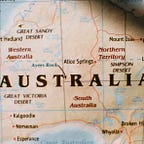Global Warming Fuels the Acceleration and Intensity of Forest Fires
Climate change has doubled Western U.S forest fires. Indisputably, global warming does have a huge impact on temperature, precipitation levels, and soil moisture. As global warming is getting more serious, moisture and precipitation levels are changed remarkably and wet areas are becoming wetter and dry areas are becoming drier. Consequently, the temperatures in spring and summer get higher, coupled with earlier spring snowmelt, which increases the likelihood of drought and a rather lengthy and intense wildfire season.
The Campfire in 2018 in northern California is the most destructive and deadliest wildfire in state history. Studies found that climate change has doubled Western U.S forest fires during the last 13 years and the average wildfire season lasts over 78 days.
More and more studies tracked the ebb and flow of ecosystem changes on a worldwide scale. Large-scale and long-lasting changes in the ecosystems and deforestation might be the cause of the higher frequency of forest fires.
Researches found that earlier snowmelt in the spring and summer has led to hot dry conditions of the forest, which boosts the fire activity in some sections. And the cost of wildfire is much beyond property damage. Air pollution would be considerably increased, which exacerbated lung diseases in individuals as well.
Wildfires Are on the Rise
“[P]rojections show that an average annual 1 degree Celsius temperature increase would increase the median burned area per year as much as 600 percent in some types of forests […] Wildfire risk depends on a number of factors, including temperature, soil moisture, and the presence of trees, shrubs, and other potential fuel[…] Warmer, drier conditions also contribute to the spread of the mountain pine beetle and other insects that can weaken or kill trees, building up the fuels in a forest. ” ( C2ES, Wildfires and Climate Change)
The Economic Costs of Wildfires
“Since 2000, 11 forest fires in the United States have caused at least $1 billion in damages each, mainly from the loss of homes and infrastructure, along with firefighting costs. The 2017 wildfire season is well above average, with deadly fires in California and throughout the West, including Montana, Oregon, and Washington state. In 2015, wildfires burned more than 10 million acres across the United States, half of that in Alaska alone […] The costliest fires occurred in California, where more than 2,500 structures were destroyed in the Valley and Butte wildfires.” ( C2ES, Wildfires and Climate Change)
image source:California wildfires: Seeking solutions to a wicked problem
“Surprisingly, some dry grasslands may be less at risk of catching fire because the intense aridity is likely to prevent these grasses from growing at all, leaving these areas so barren that they are likely to lack the fodder for wildfires to start and spread […] The risk to property owners is particularly acute in areas at the “wildland-urban interface.” In California alone, this area includes more than 5 million homes in coastal southern California, the Bay Area, and northeast of Sacramento[…] A counterintuitive aspect of mountain forest wildfires is their ability to increase flash flood risk. The loss of vegetation from wildfires and the inability of burned soil to absorb moisture can cause flash floods in lower-lying areas when rains do come in the days and months following fires, especially to the semi-arid Southwest […] Creating buffer zones between human habitation and susceptible forests, and meeting home and city fire-safety standards — we can help reduce our current risks” (Union of Concerned Scientist, Is Global Warming Fueling Increased Wildfire Risks?)
High winds accelerate two deadly wildfires in Southern California in 2019
Reference
Europe’s Historic Fires Caused By Climate Change?
The Washington Post, The really scary thing about wildfires is how they can worsen climate change
BBC News, Actor Gerard Butler’s home destroyed by California wildfire
加州大火焚極樂園 大咖明星逃離豪宅《57爆新聞》精選篇 網路獨播版
2018 California wildfires 加州野火死傷慘重。據美國國家股播公司(NBC)報導,坎普野火(Camp Fire)是加州史上造成傷亡最慘重的野火,比1933年野火更嚴重,當時造成29人死亡。官方指出,火勢已摧毀7,600棟民宅、260棟商業建築、逾2萬6千名民眾須撤離。
據法新社的報導, 目前至少已有50人喪生,數千消防人員都投入打火救援。標特郡(Butte County)警長哈尼亞(Kory Honea )說:「死亡人數增加至48人,這6具遺骸都是在天堂鎮發現,都是在住宅裡。」
